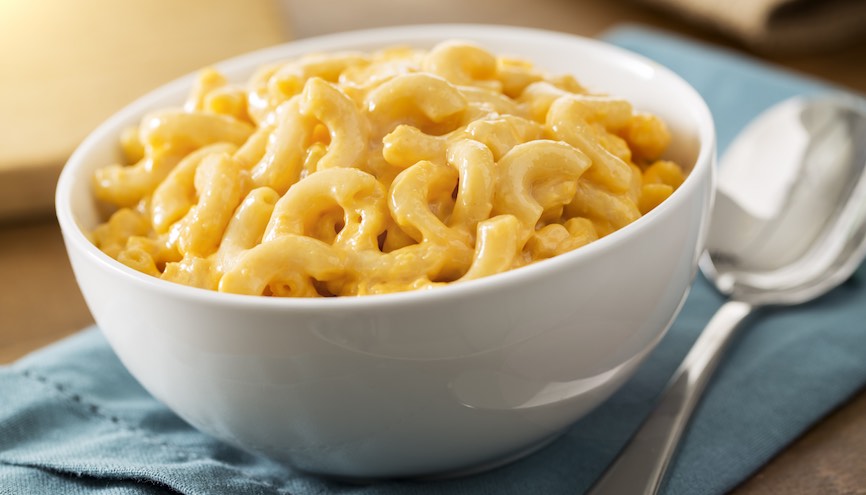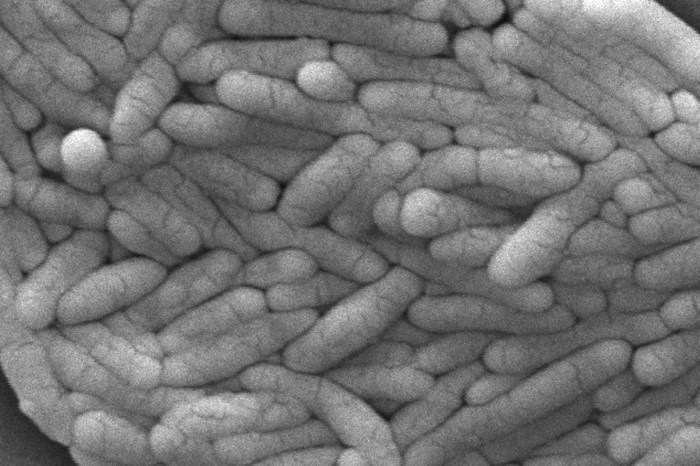Every week is a bad week, but at least we have certain creature comforts to keep us going — until now.
Just this working week, a massive iceberg broke from Antarctica because global warming is soon to end us all, if we don’t first die on the subway; the idiot president’s idiot son was revealed to have committed treason with Russia; thanks to the worst Kardashian, revenge porn is trending; and now we can’t even comfort ourselves with blue box mac and cheese because apparently it’s packed with chemicals. Can’t we have one nice thing?
OK, so you probably didn’t have any illusions that the radioactive-looking orange dust was good for you. But while before we may have had some suspicions, now they’re confirmed and we’d like to go back to the days of blissful ignorance, please. Late Thursday night, The NY Times reported that those powdered cheese packets found in your favorite boxes of mac contain high concentrations of phthalates, chemicals linked to hormone disruption, genital birth defects and learning and behavioral problems in older kids, and people are not taking the news well.
— Carolyn K (@LynCKos) July 13, 2017
No one needs this type of negativity in their lives. Can’t you report on something involving Russian dressing or something?
— Joseph DiSilvestro (@jdiesel477) July 13, 2017
A testosterone blocker, eh? This is my new backup plan for when Trumpcare takes away my prescription coverage.
— [INSERT NAME] (@pdxcoaster) July 13, 2017
Typically found in plastics, rubbers and fragrances, phthalates can seep into foodstuffs during the manufacturing process. Because phthalates bind with fat, high-fat foods, such as cheese, are especially susceptible. The new study detected the chemicals in 29 out of 30 cheese products, including processed cheese slices and natural cheeses (hard, shredded string and cottage) in addition to the powdered stuff, which contained four times the chemicals.
“Our belief is that it’s in every mac ‘n’ cheese product — you can’t shop your way out of the problem,” Mike Belliveau, executive director of the Environmental Health Strategy Center, told the NY Times. The researchers found phthalates in all ten mac and cheese products tested, which included “leading and organic brands.” There was no mention of specific organic brands, such as Annie’s.
Busy families can say goodbye to the days of easy mac dinners: pregnant women and young children are thought to be the most vulnerable to the effects of phthalate exposure.
In the Times article, Dr. Sheela Sathyanarayana, associate professor of pediatrics at the University of Washington in Seattle, offered tips for how families can limit exposure, including avoiding processed foods or anything that comes in a box with a long shelf-life, choosing low-fat dairy products and storing food in glass, stainless steel, ceramic or wood containers instead of plastic.
Oh, and perfect timing: tomorrow is National Mac and Cheese Day. Geez.



















